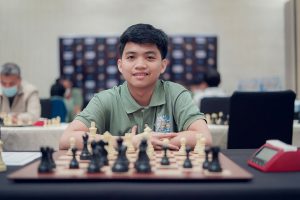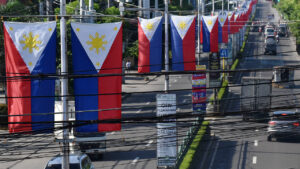The new administration’s biggest challenge

Benjamin Diokno, Bangko Sentral ng Pilipinas governor, told ANC three weeks ago that the next administration will be inheriting a much better economy than what the Duterte administration inherited. It will also be a recipient of a sound tax system and many structural reforms in the areas of retail trade, foreign investment, and public service.
While a healthy economy and a host of structural reforms in various systems give the new administration a good head start, it will still have to address tremendous challenges. The incoming administration will have to navigate the economy out of the pandemic.
Ramon del Rosario, Jr. trustee of the Makati Business Club and Secretary of Finance (1992-1993) of President Fidel Ramos, wrote in the Inquirer three months ago that due to the inflated national debt the Duterte administration is leaving behind, the new government’s ability to support the economy will be severely constrained. Resources will have to be put to the best use, with no tolerance for corruption. Private sector investments will have to be mobilized.
According to him, the most urgent demand is to get our people back to work, and for this, the new government has to generate jobs. And jobs are generated through investments. In turn, investors seek compelling economic opportunities backed by a trustworthy government. The wish list of investors is well-known: sound policies and programs, a competent and efficient administration, credible efforts to curb corruption based on transparency and accountability, a level playing field, respect for contracts and the rule of law, and consistent and reasonable regulations. The incoming president must gain the trust and respect of investors by appointing to his Cabinet people who are well-known for their competence and integrity in their respective fields.
Philip Bowring, editor of the Far Eastern Economic Review and a correspondent and columnist for international publications, sees a much bigger problem confronting the country than what Del Rosario had determined. Looking at the Philippines from outside and not linked to any Philippine political party or politician, he has an across-the-board and objective view of the Philippine situation. His frequent visits to the country since 1973 and his substantive dialogues with high-ranking officials of past administrations and with notable journalists of the country have given him an insight into the issues besetting past and present administrations.
In his book The Making of the Modern Philippines: Pieces of a Jigsaw State, completed just four months ago, Bowring says the government system which is run by and for an elite of families and interests, provincial and central, with provincial politicians beholden to whoever is on top at the time, lies at the heart of the nation’s underperformance. He cites the abysmal educational standards as a deterrent to the formulation of sound policies. While President Duterte placed competent people in economy-related posts, his appointment of people, particularly his Davao associates whose main talent is loyalty to him, engendered corruption.
Other reforms Bowring considers necessary to de-politicize decision-making would address the Supreme Court, particularly the tenure of justices. Dynastic politics is another issue which could be addressed if the incumbents did not have a vested interest in not enacting the legislation demanded by the constitution. Likewise, the capture of most of the Party-List seats in the House of Representatives by elites, and the power of the executive over budget allocation, make the House a rubber stamp of the incumbent.
He posits that governance issues rather than the strength of the Communist ideology explain the continuation for decades of NPA (New People’s Army) activity in some rural areas where poverty and wealth gaps are extreme or where traditional land rights are threatened. These problems emanate more from the structure of government than from policies per se.
He thinks Duterte was interested in power for its own sake, not because he had a radical reform agenda to force through. The drug war and an entirely rhetorical attack on corruption were just showmanship.
Bowring advances that by some measure, the Philippines needs a revolution to throw off the old elites, end monopolies, open up to foreign completion, prioritize education, eliminate large-scale smuggling, and enforce taxes. He does not believe that the continued growth of OFW remittances and BPOs which provide foreign exchange and jobs is assured as demand from traditional labor importers in the Middle East stagnates and lack of skills limits upgrading needed in the BPO world.
To him, the country’s biggest challenge is not to export more people but to make better use at home of the tens of millions in informal jobs in cities and low productivity in agriculture. He says that rebellion is simmering in the margin of society and could yet grow much bigger again as in the latter days of the reign of Ferdinand Marcos, Sr.
As regards the longer-term threat of a political and economic domination by a China seeking regional hegemony, Bowring believes the Philippines can be part of a non-military pact with significant neighbors, notably Indonesia and Vietnam, in limiting China’s ambitions.
Oscar P. Lagman, Jr. is a retired corporate executive, business consultant, and management professor. He has been a politicized citizen since his college days in the late 1950s.




